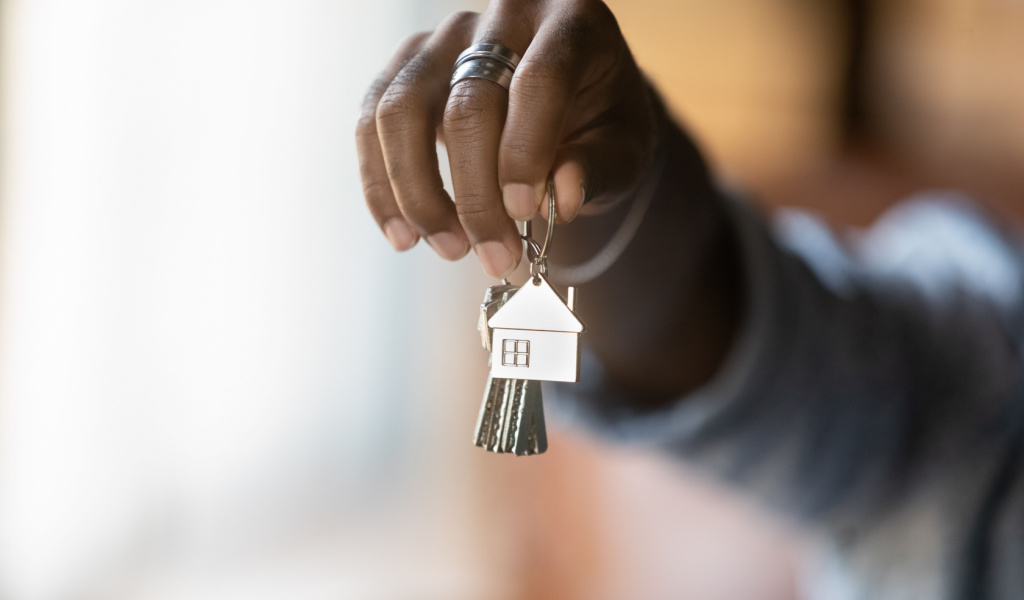It’s exciting and scary to buy your first house – and it’s a huge decision. The process is complicated, and if you’re a first-time homebuyer, you might not even know where to begin. The journey of buying your own house – starting with saving up for years and finally deciding on buying a home – is tiring but ultimately rewarding. However, you should be prepared to invest in some sound logistical groundwork, do your homework and research, and prepare yourself aptly for the home buying process. This is all the more important now, mainly because the property market is fiercely competitive!
So, if you’re already feeling overwhelmed, worry not; we’ve got you covered. Let’s look into how you can navigate this complicated process from start to finish.

Review Your Finances
You have to prepare your finances before buying a house. It’s a significant new investment, but remember that a housing loan is also an investment for your bank, which is why they look for low-risk customers for loans. As the borrower, you must prove your financial stability to qualify for a home loan.
Some things can help you prepare your finances. For example, you can pay down debt, avoid opening new credit cards or loans, and make your payments on time to help improve your credit score.
Determine Your Budget
When you buy a house, your budget is going to change drastically. Now, you’ll be required to consider new costs beyond mortgage payments. These include homeowners insurance, property taxes, maintenance costs, etc. You will also notice that your utility bills will increase. Therefore, it’s essential to have sufficient savings to cover any emergency home repairs.
Generally, banks will want you to have a debt-to-income ratio lower than 36% to ensure you’re capable of repaying your loan. This is why it’s important to determine what sort of property you can afford based on your income and finances.
Look Beyond the Market
Remember, the property market constantly fluctuates – at times, there will be more houses for sale than there are buyers, resulting in a buyer’s market. At other times, homes will be sold like hotcakes, and there will be multiple-offer situations, too! Needless to say, it’s wise to time your purchase so that the conditions are favorable to the buyer.
When you time the market, you’re attempting to predict the best time to buy a house and wait until that ideal time comes. There is an advantage here, which is being able to save more money or face less competition, but there are many downsides to this, too. For example, when waiting for the perfect time to buy a house, you might spend more money on rent or even risk ending up with a higher-priced home!
Get the Help of an Agent
Real estate agents are experts who can help you find the ideal house to suit your requirements and budget. They know the ins and outs of the property industry, so they can tell you if a property is well-priced, how good the market is, if the neighborhood is good, etc. In addition, they will also negotiate on behalf of you and prepare the necessary paperwork.
Of course, you could do this by yourself, but it’s always better to hire an agent to make better-informed choices if you’re a first-time homebuyer.
Explore Mortgage Options
There are many different mortgage loans, including particular loans for first-time homebuyers. These loans generally come with lower interest rates or reduced down payment. You must do a lot of research about the options available to you before you decide on the mortgage you will go ahead with.

Determine the Type of Home You Want
You must have a clear understanding of the different types of houses available. These include:
- Single-family houses: Homes that are not attached to any other property.
- Duplexes: Two homes with separate entrances in one building.
- Condominiums: Privately owned units in a big building. The owners possess the unit’s interior but not the exterior building. However, there are shared common areas and facilities, such as parking, pools, etc.
- Townhomes: Multistory buildings that are built side-by-side. The owner lays claim to both the interior and the exterior of the unit.
It’s also vital that you think about the space you need, the budget, and any additional fees.
Consider Where You Want To Live
Make sure to pay attention to the neighborhood features when you’re going to buy a house. Some things to consider are:
- Schools: If there are top-ranked schools, then it will directly impact property prices.
- Facilities: See if amenities like playgrounds and grocery stores are within walking distance, as this will help you save on commuting and fuel costs.
- Parking: Check if the building offers parking. If not, check for the availability of street parking within close proximity to your property.
- Property Taxes: Taxes will differ with each neighborhood. A real estate professional will give you the required information on this.
Do a Thorough Inspection
A thorough inspection of the property will allow you to discover any issues in the home’s roof, structure, plumbing, etc. Even if you have a discerning eye, a professional will be better equipped to examine the property. After inspecting, they will send a detailed report of the property’s condition. This will give you a better idea of the total cost of buying the house, including repairs and upgrades that may need to be done.
Plan Your Offer Well
How much of an offer you put in will depend on the market situation, and you have a better chance of negotiating if there is less competition. Start by listening to your agent’s recommendations. Then, write a personal letter to the seller and stretch your budget or drop contingencies. Either way, you should be prepared to be creative and flexible to get your offer accepted.
Negotiate Carefully
Negotiating is a fine art, and this is mainly where real estate agents come in handy. If the seller does not accept your initial offer, or if there are issues that showed up in the home inspection, you can up your negotiation game. You can also work with the seller to have the repairs done before you buy the house or ask for a credit against the sale price so you can fix the issues yourself.
Don’t be afraid to negotiate to land the best deal, or if you don’t get what you’re asking for, feel free to walk away!



